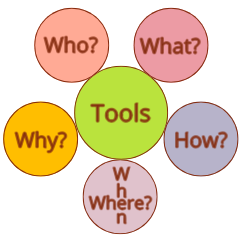Hello/Why do we study: Difference between revisions
robbiemcclintoc.org>Robbie No edit summary |
m 1 revision imported |
(No difference)
| |
Revision as of 13:25, 3 November 2024
Why a place to study?
Don't we get enough education? Most everyone has been educated in a worldwide system of formal instruction — some to succeed, others to fail. Helping more to succeed in the system and fewer to fail is important, but not the aim in creating A Place to Study.
What we get from our formal education is important, but far from sufficient. Our lived experience assesses our education in the school of life. That goes on till death and it's up to us to make it good enough, personally and collectively, to suffice for our pursuit of life, liberty, and happiness.
Our personal circumstances provide each with a base, a unique mix of abilities, limitations, and resources. We don't know exactly what they are, but nevertheless we have to work from that base within a larger world, a world that wobbles, fortuitously shaking up the circumstances in which we each live, continually forcing us to use our judgment in coping with things uncertain and unexpected. In seeking to live well, that larger world requires that each pays it some attention as each prepares to act within it. And the wobble is pretty bad.
- We harbor a pervasive racism, resentment, and complacency in our civic life that subjects large groups and many persons to persistent indignity, degradation, and abuse.
- We celebrate an economic system that is chugging out of control, over-producing, remunerating unjustly, distributing product inefficiently, and fouling the habitat with destructive bi-products.
- We stoke technical innovation as the highest source of good in the world, beneficent in all its consequences, even the unintended.
- We compete blindly in politics with weak, hard to manage rules, shirking the tasks of governing the civic whole and ripping ourselves apart through blind battling for power, heedless of its use.
- We communicate by contagion with novel affordances, oblivious to the potential effects on who says what to whom for what reasons and with what results — a chirping babel passing as voices to make us great again.
- We educate "universally" through a monoculture normed to serve and reward those who most closely conform to it, as if that system truly and fully anticipates all the vicissitudes of life.
We live at risk, each and all in a condition of substantial ignorance. The affordances of culture, which provide us with a precarious agency in life, adjust and re-calibrate as the scale of complexity actually at work in the encompassing lifeworld ratchets up.
This emergent complexity does simply add to culture a new layer of sensitivity and skill as a tree adds a new ring of growth to its trunk. Rather the significance and use of all the parts of the culture change with unannounced actuality. We perceive the cultural dislocation taking place through the discernible wobbles, but we feel it in our inner sense of life as an intensifying doubt, both tacit and explicit, that we are condemned to live our lives without meaningful agency, isolated specs of awareness buffeted into incessant motion by forces independent of our will.
Recognizing that, how should we make wise choices? That's the question we can and should examine, each personally and together, in common. That's why we study, and to facilitate that purpose, we construct a place to study.
A Place to Study offers no solutions, no packages, no planned and vetted paths. It offers each a place to reflect, to inquire, to think, and to study as each sees fit in the company of others with resources that suit the task.





